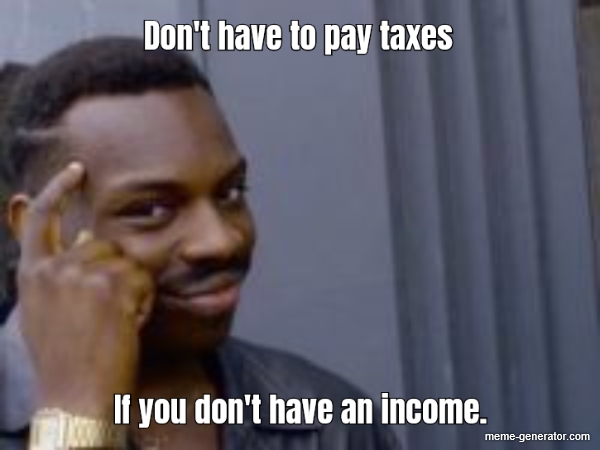As tax season approaches, it’s important for individuals and businesses alike to understand the consequences of failing to pay taxes owed. Non-payment can have serious financial and legal implications, ranging from interest and penalties to asset seizure and even criminal charges.

What Happens When You Don’t Pay Your Taxes?
When an individual or business fails to pay federal or state income taxes on time, they become subject to various penalties and interest fees. These fees can quickly add up, leading to significant debt if not addressed promptly. Some potential consequences include:
- Late payment penalty
- Failure-to-pay penalty
- Interest accruals
- Tax liens
- Wage garnishment
- Asset seizures
In extreme cases, non-payment may lead to criminal charges such as tax evasion or fraud.
Common Reasons Why People Don’t Pay Their Taxes
There are many reasons why people fail to pay their taxes on time – some more legitimate than others. Here are a few common scenarios:
Financial hardship
Individuals who experience sudden job loss, unexpected medical expenses, or other financially devastating events may find themselves struggling just to make ends meet – let alone keep up with their tax payments.
Procrastination
Some individuals simply procrastinate when it comes time to file their taxes – often leading them down a path of late filing fees and interest charges.
Deliberate non-payment
Unfortunately, some individuals intentionally avoid paying their taxes in order to hold onto cash reserves or hide assets from the government.
How Can You Avoid Tax Problems?
The best way for individuals and businesses alike is simple – stay current with your tax payments! However for those facing challenges staying current with your payments here are several possible ways one could explore:
Installment agreement
Those in financial hardship may request installment agreements that allow them set up regular payment plans over an extended period of time.
Offer in compromise
Individuals may qualify for an offer in compromise, which allows them to pay a reduced amount to satisfy their outstanding tax debt. This applies under certain conditions like if the individual has limited resources, unable to pay the full amount owed or any other extraordinary circumstances.
Penalty abatement request
Those who have valid reasons for not paying taxes on time – such as medical emergencies or natural disasters – can file a penalty abatement request with the IRS. If successful, this could help reduce late payment penalties.
Final Thoughts
While it may be tempting to put off filing taxes or neglect payments altogether, doing so can have severe consequences that impact your finances and even liberty. It’s important for individuals and businesses alike to understand the risks associated with non-payment and take proactive steps towards staying current with their tax obligations. By staying informed about available options and seeking help when needed we can avoid unnecessary complications down the road.
Remember – “An ounce of prevention is worth a pound of cure.”
References:
- Internal Revenue Service Official Website
- Tax Foundation
- Investopedia
FAQs
What happens if I don’t pay my taxes on time?
Answer: If you fail to pay your taxes on time, you may face a range of consequences including penalties and interest charges. The longer you wait to pay your taxes, the more severe these consequences can become.
Can the government garnish my wages or seize my property if I don’t pay my taxes?
Answer: Yes, the government has the authority to take legal action against taxpayers who fail to pay their tax debt, which can include wage garnishment or seizure of assets such as property or bank accounts.
Is it possible to negotiate a payment plan with the IRS if I cannot afford to make full payment of my tax bill?
Answer: Yes, it is possible for taxpayers who are unable to make full payment at once to negotiate a payment plan with the IRS that allows them to make smaller payments over an extended period of time. Contacting the IRS early and being proactive in seeking out available options is key when facing difficulty paying federal income taxes.
FAQs
**Q:** *What are the potential consequences of not paying taxes on time, according to the blog post for 2024?*
A: The blog post discusses five potential penalties for failing to pay taxes on time in 2024: the failure-to-file penalty, the failure-to-pay penalty, the estimated tax penalty, the late payment penalty on tax deposits, and the late submission penalty for amended returns.
**Q:** *What constitutes the failure-to-file penalty mentioned in the blog post?*
A: The failure-to-file penalty is a percentage of the unpaid tax amount, starting at 5% per month up to a maximum of 25%. The penalty applies when you file your return after the due date.
**Q:** *Can I find specific examples of how much the penalties cost in the blog post?*
A: Absolutely! The blog post provides examples of how the penalties accumulate based on various tax situations. To give you an idea, the failure-to-file penalty on a $5,000 tax debt can reach up to $1,250, while the failure-to-pay penalty can add up to $225 per month. Make sure to read the blog post for more detailed, real-life examples
